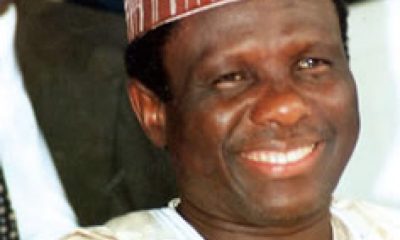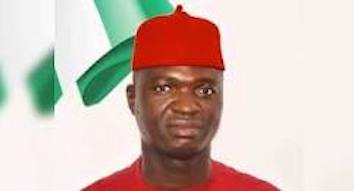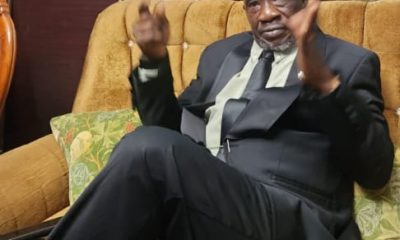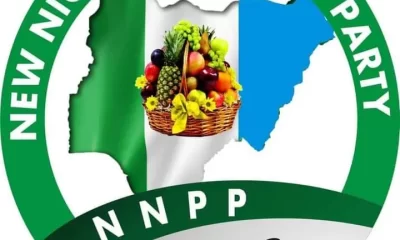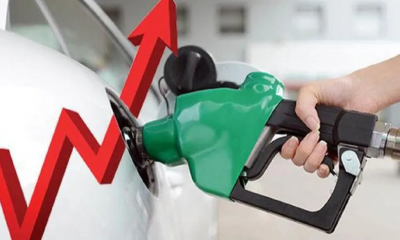OPINION
June 12, 1993, Running Mates and 2023
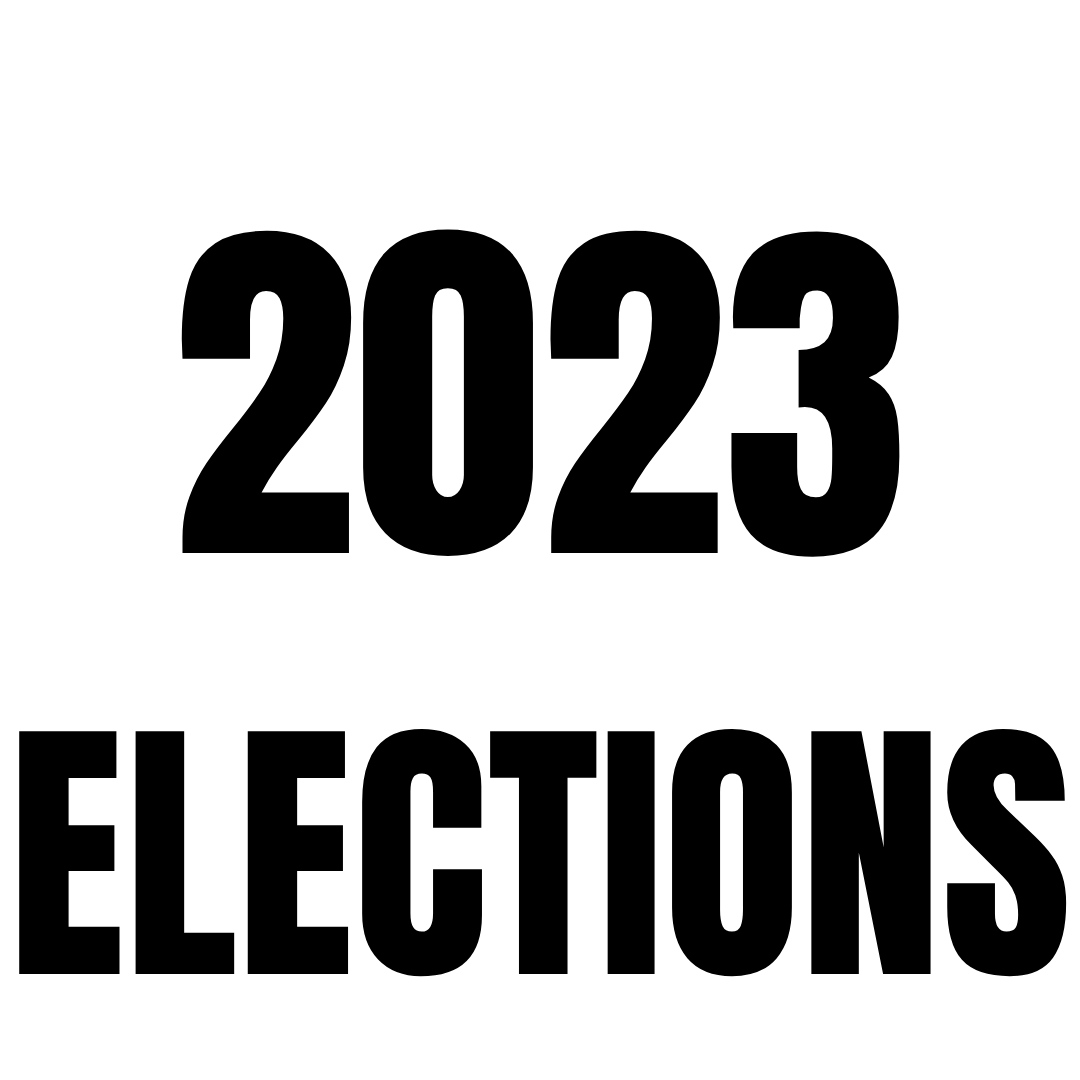
By Reuben Abati
Yesterday, Nigeria declared a public holiday, and marked the 29th anniversary of June 12, 1993, the day Nigerians trooped out en masse to elect Bashorun Moshood Kashimawo Abiola, a South-Westerner, a Yoruba man, as president of Nigeria. On that day, Nigerians discounted primordial sentiments and ignored the centrifugal forces at the heart of the Nigerian question.
For the first time since the first legislative election was held in Nigeria under the Clifford Constitution in 1922, the usual divisive factors of religion, geography and ethnicity, did not matter. Abiola was a Yoruba man. He won convincingly in more than the two-thirds of the states required by the Constitution. He even beat his main opponent, Bashir Tofa, of the then National Republican Convention (NRC), not just in the pre-election debate and campaigns, with his wit, humour, knowledge, stature and charisma, but he went ahead to trounce Tofa in his own ward in Kano, and the entire State. It is instructive that Bashir Tofa has remained a footnote in Nigerian history since then. He was no match for Abiola when alive and even in death.Abiola did something unusual. He presented before Nigerians a Muslim-Muslim ticket. His running mate was Baba Gana Kingibe, another Muslim, but a Northerner. Nigerians didn’t bother about that. They wanted change. They wanted progress. They sought freedom from the shackles of military tyranny. Abiola preached a message of hope. Since the January 1966 coup led by Major Kaduna Nzeogwu, truncating the liberation from colonial rule, Nigeria had found itself in the grips of corrosive, corrupt, and obnoxious military rule. There was a brief spell of civilian rule between 1979 and 1983, but the military seized power again, at a time when strong-man, military rulership was the mode in most African countries. In the 1990s, a wave of democratisation eventually took hold in the global arena and Nigeria feeding on this, under General Ibrahim Babangida, launched a political transition programme that became an exercise in trickery and deception.
This was also the season of glasnost and perestroika, a big unraveling, the end of the Cold War, and the beginning of transformations across the globe. Nigeria got caught in that cauldron of change. M.K.O Abiola, as events happened, won the election. But he was denied victory on June 24, 1993, with the annulment of the election. General Ibrahim Babangida, IBB as he is also known, was the head of the military junta that committed this perfidy, this subversion of the people’s will, and although he has claimed that he was not alone and that his hands were tied, the event of June 12, 1993, an election won by a man he considered his friend, will remain a day in infamy as a symbol of betrayal, insincerity and political suicide of the first rank. It must be remembered that Abiola’s victory would have marked a second liberation for Nigerians, liberation from the shackles of military tyranny, even if now in retrospect, nobody can say definitively how that denied presidency would have turned out. It was all a matter of justice, democracy and the people’s sovereignty. It is therefore poetic justice that June 12 has remained a major signpost in Nigerian history. It is also remarkable that President Muhammadu Buhari is the one who decided to move Democracy Day from May 29, the traditional day for handing over of batons in the nation’s calendar, every four years, to June 12, to remind all Nigerians of the significance of that date. This will form a major substance of Buhari’s legacy, at the level of simple commonsense, if not any heavy substance.
What endures is the symbolism and martyrdom of M.K.O Abiola, and what Buhari has done is to take that phenomenon to an appropriate location in national memory in a country where it is ever so convenient to forget. For the benefit of those who may have forgotten, Nigeria became a pariah nation. The international community turned against Nigeria. Civil society groups rose against the Nigerian government. The green passport became a source of embarrassment in all parts of the world. It was a difficult season to be a Nigerian. The media, the church, and progressives of all hues took to the streets and stood at the barricades to demand an end to military rule and the restoration of Abiola’s mandate. IBB, now known as the Maradona, stepped aside. An interim government led by Chief Ernest Shonekan, better described by the Yoruba phrase “fidihe” government took over, but that government lasted only 83 days. It was eventually booted out by the dark-goggled General Sani Abacha, who imposed a reign of terror on the country. Journalists were murdered. Where the husbands could not be found, their wives and new babies – Dapo Olorunyomi’s new born baby for example, were targeted by “the wereys” that had taken over Nigeria. M.K.O Abiola stood firm. He had the support of committed democrats and progressives from every part of Nigeria. He led the struggle with courage and resolve at great personal risk. On July 11, 1994, he made the Epetedo Declaration.
It was a statement of defiance, bravery and heroism. He eventually paid for that with his life. What Buhari has done in this part of Nigerian history by declaring June 12 as Democracy Day, is to deal a mortal blow to the revisionist attempt to reduce June 12 to a Yoruba struggle. It was not. It was a pan-Nigerian attempt to save Nigeria. The beneficiaries of the martyrdom and the heroism of others have not necessarily been the right persons. Joe Igbokwe has written an instructive book in this regard titled Heroes of Democracy. There is also June 12: The Struggle for Power in Nigeria by Abraham Oshoko. Other books of interest would be those by direct participants in the saga, including The Struggle for June 12 by Frank Kokori; The Tale of June 12 by Omo Omoruyi, Clapping with One Hand: June 12 and the Crisis of a Nation by Olawale Oshun; and Humphrey Nwosu’s Laying the Foundation for Nigeria’s Democracy: My Account of June 12, 1993 Presidential Election and its Annulment. Nwosu was the chairman of the National Electoral Commission (NEC) that conducted the 1993 elections. The June 12 crisis destroyed his career in the public arena.
June 12, 1993, this year, is being commemorated at an auspicious moment. The party primaries have been concluded. Presidential standard bearers have emerged. It is no longer the season of military rule – Nigerians have since said “Never Again” to that but old anxieties have not disappeared. In 2014/2015, Nigerians thought they wanted change. They asked for it. The only change they got was the change of personalities, and the worsening of the Nigerian condition. Eight years later, nobody can boast that the Buhari administration has been able to change anything or inspire hope. Rather, Nigerians are looking back to the past in anger. Many even thought former President Goodluck Jonathan should return to rescue the country that he handed over to the exceptionally clueless gang that took over from him. That has not happened, and I hope all the noisemakers who thought that was even possible in the first place would be humble enough to think twice. Where then are we as a country?
We are preparing for the 2023 general elections. We have 17 or 18 presidential candidates. INEC, the electoral umpire, has set a deadline of June 17 for the uploading of names and affidavits on the INEC Nomination Portal. The INEC chairman, Yakubu Mahmood, has announced the relevant conditions and guidelines. As of the time of this writing, only the All Progressives Grand Alliance (APGA) has announced its presidential running mate; by this time next week, all running mates at the presidential level would have been announced. Given the nature, structure and circumstances of Nigerian politics, the 2023 process has already been reduced to a two-horse race, between the Peoples Democratic Party (PDP) and the All Progressives Congress (APC). Some commentators argue that attention should be paid to the Peter Obi phenomenon. Quite rightly so. He was a two-time governor of Anambra State under the platform of APGA. He later switched to the Peoples Democratic Party (PDP). In 2019, he was chosen as running mate to Atiku Abubakar of the PDP. In 2023, he declared interest to run on his own on the platform of the PDP. He has since gone to the Labour Party (LP) where his major challengers have turned out to be his own Igbo kinsmen, Callistus Okafor and co, at a time when Ndigbo, having been denied a top spot placement in the PDP and APC needed a platform of their own to project the idea of an Igbo presidency.
There are about five Igbos as standard bearers in the 2023 process: Dumebi Kachikwu (Delta Igbo- ADC), Peter Umeadi (APGA), Peter Obi (Labour Party), Okwudili Nwa-Anyadike (NRM) and Dan Iwuanyanwu (ZLP), but Ndigbo is not talking about their own. They are talking about a meeting to decide who to choose between Atiku (PDP) and Bola Tinubu (APC). Peter Obi is clearly the frontrunner among the Igbos on the list. He enjoys massive support among young people of Nigeria, particularly from the South. They call him Obi-Bangladesh, Obi-China because of the transformative ideas that he espouses. But he is at best, probably a man ahead of his time. Social media does not win elections. On the practical field of play, Peter Obi does not have Atiku’s or Tinubu’s kind of money in an election that is already a cash-and-carry affair. On that list of standard bearers, there is also Senator Rabiu Kwankwaso of the New Nigeria People’s Party (NNPP), a man who is defined by Kano politics and his own politics of personality. Kwankwaso’s best bet is Kano, not Nigeria.
Tinubu has a bigger challenge. He wants to win. He and Atiku are on the last mile.
OPINION
Buhari: Lessons in Leadership and Patriotism

By Ismail Abdulaziz
On July 13, retired Maj.-Gen. Muhammadu Buhari, former President of Nigeria, passed away after the mid-day prayers at a London Clinic at the ripe age of 82.Many testimonies about his life and times indicate a man of civility, discipline and patriotism not adding his avowed principle of living a Spartan life and commitment to eradication of corruption.
President Bola Tinubu, paid a glowing tribute. ‘’Buhari was to the very core, a patriot, a soldier, a statesman; his legacy of service and sacrifice endures.“He served Nigeria with unwavering dedication, first as a military leader from January 1984 to August 1985, and later as a democratically elected President from 2015 to 2023; duty, honour, and a deep commitment to the unity and progress of our nation defined his life.“He stood firm through the most turbulent times, leading with quiet strength, profound integrity, and an unshakable belief in Nigeria’s potential.“He championed discipline in public service, confronted corruption head-on, and placed the country above personal interest at every turn,’’ the president said.Similarly, the revered Islamic scholar, Mufti Ismail Menk, said Buhari was an upright man, who never missed his prayers and a very disciplined believer who served his people to the best of his ability.“His name was synonymous with integrity.“He was definitely one of those who made me develop a much better perception of Nigerians as a people,’’ he said.The U.S. Mission in Nigeria also condoled with Nigeria.“Buhari was a leader whose life was defined by service, discipline, and a commitment to restore integrity to public office.“His legacy includes his efforts to strengthen Nigeria’s democratic institutions,’’ it said.The Chinese embassy in Nigeria also expressed its condolences.‘’We mourn a resolute leader whose unwavering dedication to Nigeria’s unity and progress leaves an enduring legacy.“His pivotal contributions to advancing China-Nigeria relations will forever remain etched in our shared history,’’ it said.Former President Olusegun Obasanjo, who was also a former military Head of State like Buhari, said the late president was a comrade, a cool patriot, who as a soldier, played his role.“As an administrator, he played his role as an administrator; as a statesman, he played his role as a statesman.“At a time like this, we need the totality of the experience and what I may call statesmanship of all those who have had opportunities to run the affairs of this country to get us out of the situation we are in; he will be sorely missed; may his soul rest in perfect peace,” Obasanjo said.Tributes have also come in from the Ethiopian Prime Minister Abiy Ahmed Ali, Sierra Leone President Julius Maada Bio as well as World Trade Organisation Director-General Ngozi Okonjo-Iweala.During his campaign in 2015, something spectacular happened.The masses of Nigeria decided to contribute their widows’ mites for his success.What else can a human want than the general believe in his capacity and ability to lead them to the Promised Land?This singular act was a burden placed on him by the people to rectify the past.Analysts say the history of Nigeria will be replete with the roles Buhari played during his three terms leading the country.First, as a military head of state and subsequently, as a democratically elected president between 2015 and 2023.For history to be kind to him, the testimonies of those around him during his time will shape the final options.As an elder statesman, Ibrahim Badamasi Babangida once said: “History will be kind to you for taking a decision, but will never be kind to you for not taking a decision.”Buhari accepted most of the mistakes he took while serving the people as exemplified in one of his statements in the course of his handing over the reign of leadership to President Tinubu.“Whoever thought that there has been some form of injustice on him we are all humans, there is no doubt I hurt some people, and I wish they would pardon me and those who think that I have hurt them, please pardon me.”The man that peacefully handed over power to Buhari, former President Goodluck Jonathan, has some comforting words.‘’He will be remembered as a courageous leader, a disciplined officer, and a committed public servant who made considerable contributions towards the peace and progress of our dear nation.“The late President was deeply admired across the strata of society for his decency, integrity and exemplary life of service.“As a leader, he was selfless in his commitment to his duty and served the country with character and a deep sense of patriotism.‘’In his passing, Nigeria has lost one of its foremost leaders, and I have lost a respected colleague and elder.“His legacy will continue to endure in the hearts of all who value sacrifice, integrity, perseverance and devotion to national ethos,’’ Jonathan said.Buhari was born on Dec. 17, 1942 in Daura, Katsina State to Adamu and Zulaiha Buhari.He was raised by his mother, following the death of his father when he was about four years old; he had his primary school education in Daura and Maidua from 1948 to 1952, before proceeding to Katsina Middle School in 1953.He joined the Nigerian Army in 1961 when he was admitted to the Nigerian Military Training College, Kaduna.Buhari underwent Officer Cadets training at Mons Officer Cadet School in Aldershot, England from 1962 to 1963, and was commissioned as Second Lieutenant in January, 1963.He attended the Nigerian Military College, Kaduna for the Platoon Commanders’ Course from 1963-1964Buoyed by a deep sense of patriotism and commitment to national service, Buhari entered politics in 2003, following Nigeria’s return to a democratic dispensation in 1999.Buhari joined the All Nigeria People’s Party (ANPP) and contested the presidential election on its platform that year.He lost to the presidential candidate of the People’s Democratic Party (PDP) Olusegun Obasanjo.Undeterred by defeat, Buhari continued his political struggle, and on Dec. 18, 2006, he emerged as the consensus presidential candidate of the ANPP for the 2007 elections.His main challenger in the April 2007 presidential polls was the ruling PDP candidate, Umaru Yar’Adua.In the election, Buhari officially scored 18 percent of the total votes cast, against 70 percent for Yar’Adua.In March 2010, Buhari left the ANPP and formed, with some of his supporters, the Congress for Progressive Change (CPC).Buhari was nominated as the CPC presidential candidate on April 16, 2011 for that year’s general election.He ran against the then incumbent, President Jonathan of the ruling PDP, Malam Nuhu Ribadu of the Action Congress of Nigeria (ACN), Ibrahim Shekarau of the ANPP, and other candidates of smaller parties.Using the platform of the CPC, a newly formed party, Buhari was able to garner 12, 214, 853 votes, coming second to Goodluck Jonathan of the Peoples Democratic Party(PDP), who polled 22, 495, 197 votes.In 2015, under the platform of the All Progressives Congress (APC), Buhari won the presidential elections of March 28, defeating the incumbent Jonathan of PDP.He was sworn into Office as President, Commander-In Chief of the Armed Forces, and Federal Republic of Nigeria on May 29, 2015.After eight years in office, Buhari ensured a smooth transition process; in May 29, 2023, he handed over power to President Bola Tinubu who was also elected under the platform of APC in the February, 2023 presidential election.(NAN)OPINION
Naira Spraying Crackdown: Cultural Policing or Economic Necessity?
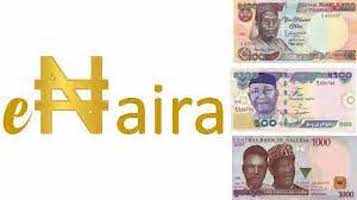
In recent months, Lagos has witnessed a sharp intensification of the crackdown on spraying naira notes at social events, with the Economic and Financial Crimes Commission leading enforcement efforts to uphold currency integrity.In April 2025, popular Lagos socialite Emeka Okonkwo, known as E-Money, was arrested for allegedly spraying both naira and US dollars at public gatherings, an act that violates Nigeria’s currency laws.
In the same month, two social media influencers, Tobilola Olamide (TobiNation) and Peter Olaitan (TDollar), were convicted and sentenced to six months imprisonment or a fine for spraying naira notes at a Lagos event, based on viral TikTok videos that triggered EFCC investigations. These cases underscore the government’s renewed commitment to enforcing the Central Bank Act provisions against currency abuse, amid growing concerns over inflation and economic stability.Beyond Lagos, notable Nigerians have also faced arrest and conviction for spraying naira under the Central Bank Act. Idris Okuneye (Bobrisky) was convicted in April 2024 and sentenced to six months’ imprisonment after his March arrest for spraying at Lagos events.Actress Oluwadarasimi Omoseyin was arrested in February 2023 for spraying and stepping on new naira notes at a wedding in Lagos, receiving a six-month jail term with an option of a fine. A makeup artist, Abdullahi Huseini (Amuscap), was sentenced to six months’ imprisonment in Kano for spraying at his wedding. Cubana Chief Priest was also arrested, etc.We praise the EFCC and the government for doing a great job of protecting the integrity of the naira by ensuring that abusers are punished. We wish and pray that the same swiftness and assurance of convictions be visited on other issues, such as political corruption and insecurity.According to a report by Daily Post 2021, Mr Akin Adewale from a first-generation bank said it was good so that money would not be devalued. What the CBN said was that it spent a lot of money printing it, and the cost is passed on to the economy in the long run. He said, “If the money is rough or torn, its life span is reduced, and printing becomes more frequent, which leads to inflation.”Any person who has been in the country since 2021 will know that the devaluation of the Nigerian currency is closely related to inflation.But what about the cultural significance of spraying money among Nigerian communities?To criminalise spraying money without acknowledging its cultural weight risks violating the social rhythms that bind communities together.In Yoruba culture, spraying money is a revered symbol of honour and respect. It is a way to publicly celebrate and support the success and status of loved ones, affirming social bonds and communal pride. For the Igbo, spraying is an expression of joy and solidarity, a ritual that marks milestones and reinforces communal support. Among the Hausa-Fulani, though less common, similar acts of generosity during celebrations symbolise goodwill and social harmony. The same is also true of many other ethnic groups in the country.Beyond mere festivity, spraying money is a powerful social symbol; it represents abundance, generosity, and the collective sharing of fortune. It is a language of respect, a way to uplift individuals while strengthening community ties. To clamp down on this practice without sensitivity is to risk eroding a cherished cultural expression that nurtures social cohesion.No doubt, many countries have laws prohibiting the mutilation or defacement of currency to protect their integrity. Singapore, Sri Lanka, Australia, the United States, the United Kingdom, and Canada all enforce penalties, ranging from fines to imprisonment, against damaging their money.These regulations reflect a global consensus that currency is both a medium of exchange and a national symbol essential for economic stability. It means Nigeria’s Central Bank Act similarly criminalises currency abuse, including spraying naira notes, to safeguard the naira in line with the value that other nations of the world uphold.By implication, therefore, the culture of enjoying money spraying as a social bonding avenue is an aberration that followed normal political impunity in Nigeria. It’s not really a piece of culture rooted in African cosmology.Political and class dimensions also raise concerns about selective justice and unequal treatment of the elite versus ordinary people. Many countries indeed criminalise the mutilation or defacement of currency to protect its integrity, and Nigeria’s Central Bank Act follows this global practice by outlawing acts like spraying naira notes. However, this raises a deeper question: is criminalising currency abuse more important than implementing policies that genuinely uplift the lives of Nigerians?One must wonder whether the Nigerian government’s crackdown is driven by a sincere commitment to economic reform or simply an attempt to imitate other nations without addressing more pressing issues. It is normal for governments to prioritise certain policies, but if the focus is on enforcing currency laws, then why has there been so little progress in prosecuting terrorists, corrupt officials, or those who steal public funds? Why are governors and government officials rarely held accountable under the law, including the Bank Act?For instance, an online report showed that Thomas Ekpemupolo, known as Tompolo, a former Niger Delta militant leader, was caught in a viral video from his April 54th birthday celebration dancing while N1,000 notes were sprayed and stepped on, actions considered naira abuse under Nigerian law.Following public outcry, the EFCC vowed in May to investigate and hold him accountable, stressing, “Nobody is above the law.” As of late June, there has been no public update on his arrest or arraignment. If the case of the former Niger Delta militant leader could go this way, how about when a governor or senator is seen committing such an offence? Yet the government ought to look into a balanced approach to naira spraying.No one is in support of mutilating the currency, but a balanced approach to the naira spraying crackdown could help preserve cultural heritage while protecting the currency’s integrity. One solution is public education to raise awareness about the legal restrictions and the economic impact of currency mutilation, encouraging celebrants to handle naira notes with care rather than abandoning the tradition altogether.Additionally, regulated practices could be established where spraying is done respectfully and with minimal damage, such as using designated fresh notes or limiting the amount sprayed, distinguishing between cultural honour and currency abuse. This middle ground respects the ritual’s social significance while aligning with legal and economic concerns.Outright bans risk alienating communities and eroding cultural identity, whereas education, innovation, and sensible regulation offer a path to harmonise tradition with the imperative to protect Nigeria’s fragile economy.Most importantly, instead of merely emphasising the sanctity of the naira, Nigeria should strive to uphold the true rule of law, ensuring justice, fighting corruption, and protecting citizens, just as many other countries do. Without this broader commitment, focusing solely on currency integrity risks appearing superficial and disconnected from the urgent needs of the people.Dr Mbamalu, a Jefferson Journalism Fellow, member of the Nigerian Guild of Editors and media consultant, is the publisher of Prime Business AfricaOPINION
Two Sides of Late Major General Muhammadu Buhari

The late Major General Muhammadu Buhari, who famously overthrew the government of Alhaji Shehu Shagari, struck like a thunderbolt. His death, announced yesterday, July 13, 2025, shocked the nation, especially as he appeared healthier than when he was elected President of Nigeria in 2015.
In reflecting on his life and legacy, it is essential to compare the two distinct eras of Buhari’s leadership: first as a military ruler and later as a democratically elected president. As a military president, Buhari was often perceived as a no-nonsense leader who implemented significant reforms that impacted the political, economic, and social landscape of Nigeria. His initiatives included:i. War Against Indiscipline;ii. Import Substitution Industrialization Policy;iii. Go Back to Land Programme; andiv. Foreign Policy InitiativesThe announcement of his coup triggered panic among second Republic politicians, who went into hiding, fearing the unknown. Their concerns were not unfounded; the brutal orders that followed forced many into detention without trial for extended periods. While these policies are attributed to General Buhari, some believe they were largely orchestrated by General Tunde Idiagbon, his Chief of Staff, a bold and incorruptible officer who played a crucial role in implementing Buhari’s agenda.Ambassador Lawal Rafindadi, the Director General of the National Security Organization (NSO), also significantly influenced Buhari’s policies. Under his leadership, the NSO detained numerous Nigerians and a few foreigners without trial, while also investigating high-profile corruption cases, including that of Umaru Dikko.Buhari’s name incited a mix of fear and admiration among Nigerians; while his policies benefitted many, they caused distress for others. There is a prevailing belief that Idiagbon and Rafindadi were the true engines of governance during Buhari’s regime. His subsequent overthrow by General Ibrahim Babangida and the ensuing years of incarceration were reminiscent of the betrayal faced by Julius Caesar.When Buhari returned to power as the elected president in 2015, many Nigerians expressed hope that he would revive the transformative policies of his military rule. However, the reality was starkly different; the economy continued to plummet, corruption surged, and social cohesion deteriorated.This raises the question: Were the key figures who had previously supported Buhari—such as Tunde Idiagbon and Lawal Rafindadi—absent during his second tenure? Observing Nigeria’s political and economic landscape at the time, one might conclude that the nation had made progress in governance compared to Buhari’s first administration. Yet, familiar advisers from his earlier days remained influential, including figures like Malam Maman Daura, the late Mamud Tukur, Alhaji Magaji Danbatta, Professor Ango Abdullahi, and General Aliyu Gusau.Some critics have suggested that Buhari’s second coming could be summed up by the adage “once bitten, twice shy.” Rumor has it he confided to close friends that, in his youth, his aspirations to save Nigeria were thwarted; thus, he was unwilling to dedicate his later years to a country that had not recognized his contributions.Despite this backdrop, Buhari’s integrity remained intact. He personally rejected corruption; however, it appeared he overlooked the corrupt practices of those around him. His presence will be missed as a Nigerian statesman capable of fostering stability in various regions. His immediate family and allies will mourn his passing, as will many Nigerians who knew him well.As we ponder Buhari’s legacy, it remains unclear how history will ultimately judge him. Will he be remembered with fondness or skepticism? Only time will tell, as historians analyze his contributions and their impact on Nigeria.Simon Shango MFR writes from Abuja
